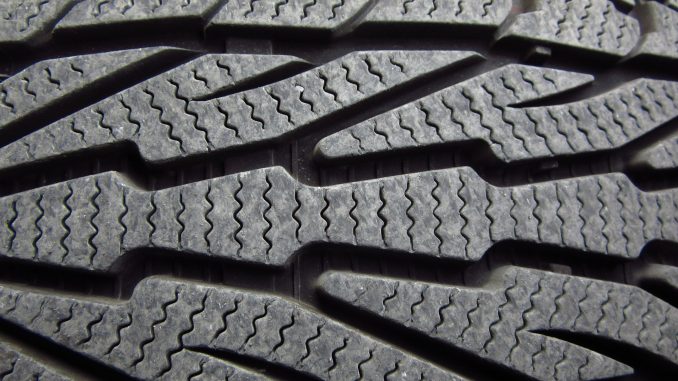
It’s that time of year again. We’re packing away our summer clothes, shutting off the AC, and starting to knock out our holiday shopping. But, there is another very important to-do on our winter preparations list that we tend to negate: upgrading our tires.
It doesn’t matter if you have all season tires or an anti-lock braking system. Winter tires are essential to protecting our safety, especially in heavy ice and snow.
Luckily, the price of winter tires is much less expensive than it once was. Don’t take any chances this holiday season- get prepared so you don’t put yourself in harm’s way. Here are 6 reasons you need to invest in tires for snow and ice.
1. Some States/Provinces Require Winter Tires
In North America, all states and provinces have regulation on the use of snow tires. Currently, there aren’t any U.S. states that mandate snow tires. But, they’re recommended in all regions throughout the frost belt, from out west to New England.
Three Canadian provinces require their residents to use snow tires: British Columbia, Alberta, and Quebec. As of 2015, BC drivers on specific highways must travel with these tires. If caught without, they could face a $100 fine.
Alberta residents need winter tires when traveling throughout certain mountainous areas. By law, they also must be on between November 1 and March 31, or whenever there is snow or ice covering the road.
Quebec is the only province that requires snow tires no matter where you’re traveling. Drivers must use these tires from December 1 to March 1.
2. Tire Pressure Decreases with Temperature
As we all know, tire pressure decreases quite rapidly with cold temperature. For every 10 degrees Fahrenheit the temperature drops, your tires drop 1 PSI.
Having an adequate amount of tire pressure is important year-round. If it runs too low in the winter, you’re putting yourself in immense danger.
You need proper air pressure to keep you safe. Winter tires have specific features to combat low temperatures, such as tread rubber and depth and biting edges.
Their tread is much deeper than a regular tire, and once it gets cold, their rubber expands and stiffens. You have a much better grip on the road, as the tread will expel snow and ice. Their biting edges add further protection by adding greater traction.
Winter takes a toll on any car. As this snow plow quotes provider explains, a commercial auto policy can’t protect against a lot of accidents. Precautionary steps, such as investing in winter tires, minimizes your risk for injury.
3. All-Seasons For Winter? Think Again
Although dealers market all-season tires for year-round use, they aren’t suited for the harsh winter months. In order to accommodate for both warm and cold months, these tires must compromise in some safety facets.
The tread patterns on all-season tires aren’t nearly as capable of channeling snow and ice. Winter tires have specific compounds that allow them to maintain a stronger grip, even in unideal conditions. Consequently, when the temperature lowers, as will the pressure of all-season tires.
Many snow tires have a directional design, which actually encourages a snow-on-snow grip. This, in addition to a multi-angle positioning, increases traction on wet roads.
In the past, most favored all-seasons, as winter tires can be quite noisy. However, they’re now made with “ribs” that minimize sound when traveling down the road.
4. Protection from More Than Just Snow
You may be thinking, “Well, why do I need snow tires when my area doesn’t get much snow?”. If you live in an area that sees coldness, you need special tires. After all, they protect against from far more than just snow.
They’re also designed to protect you from wetter weather, which can occur with or without snow. You don’t want to hydroplane and lose control of your vehicle while driving down a slippery road.
Winter tires will give you that protection, as they have an accelerated trip grip. If you live in an area that gets below 44 degrees Fahrenheit, it’s recommended you buy special tires.
5. Winter Tires are Compatible With Anti-Lock Braking Systems (ABS)
Winter tires are often dismissed due to the fact many of our cars have high-tech safety features. Anti-lock brakes, electronic stability, and all-wheel drive are all great to get through the winter months.
But, they’re not there to replace the need for a specialized winter tire. These features can help provide a better road grip and protect you from collisions. However, they also need the facets of a great tire to maximize their strengths.
Ultimately, your tires are responsible for maintaining a sturdy grip. If all tech fails, your tires are the ones who will ensure you’re going to be safe. You don’t want to put your trust into a safety feature that could have a high possibility of failing.
6. Protection from “The Other Guy”
When it comes to winter driving, it’s not our capabilities that scare us, right? It’s those of the “other guy”.
Unfortunately, this blatantly-obvious adage holds some weight. You don’t ever know what can happen with other drivers on the road. It’s best to prepare in the case that not only you’re in a pinch, but another driver traveling near you is.
Winter tires offer that protection. They take the worry out of fast stops and slides if someone in front of you decides to immediately brake. One 2017 test found winter tires brake 6 feet faster than a standard tire.
Let’s Wrap This Up
If you live somewhere that gets cold, you should invest in winter tires. These special tires protect against any kind of harsh condition, even when there is no snow on the ground.
Auto-Facts is here for all your car questions. Our team of experts wants to help you with your car maintenance or repair. Check out over 1,000 service repair manuals here. Also, don’t hesitate to contact us with any questions.
